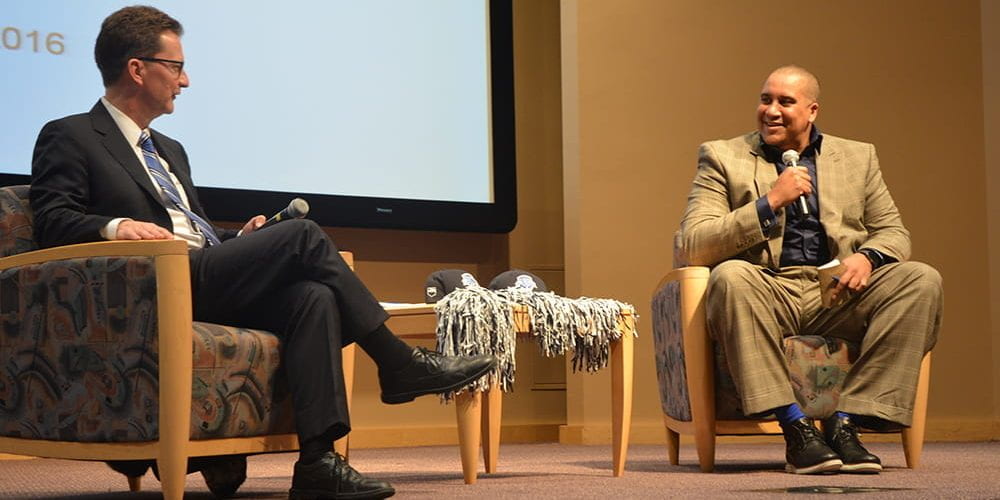As a 7-year-old “obsessed with football” Dr. David Goldblatt’s experience attending games was short-lived, in fact it was just one match. In an era of hooliganism in English football, Goldblatt and his father had a verbal altercation with a group of drunk young Scottish supporters outside of Wembley Stadium in the 1970s, and Goldblatt was first introduced to the role of sports in society.
Goldblatt, now a self-described “public intellectual in the realm of sports,” discussed this connection, his past work and current projects looking at climate change and sports as part of the colloquium series sponsored by the Penn State Department of Kinesiology.
Goldblatt’s first book, released in 2006, The Ball is Round: A Global History of Football illustrates soccer’s role in politics and modern society. In 2015, Goldblatt won the William Hill Sports Book of the Year Award for The Game of Our Lives: The Game of Our Lives: The Meaning and Making of English Football. Goldblatt has also produced documentaries for the BBC and his works have appeared in many prominent British newspapers including the Guardianand the Observer.
“You can’t write a history of the modern world, you can’t write a history of any modern society, any serious cultural history that registers the real texture of human life without writing about football,” Goldblatt said Thursday afternoon. “On the other hand, to the sports world, up your game people. We can’t go on with this ‘it’s not about politics, it’s just about the sports’ nonsense. Stop it, stop it, stop it, it’s silly.”
As lockdown continues in the United Kingdom due to the coronavirus pandemic, Goldblatt has turned his attention toward something he worked on nearly 30 years ago when receiving his Ph.D from Cambridge — climate change. Specifically, Goldblatt is looking at the intersection of sports and climate change. According to his research, 9.8% of the world’s carbon emissions are from sports, a number Goldblatt finds concerning.
“That’s like Poland or Spain and no one is saying to Spain ‘fine, you just carry on,’” Goldblatt said. According to Goldblatt, the world of sports can make a big change in reducing the world’s carbon footprint, but first climate change needs to be accepted as a universal problem. “I think sport can make a real contribution because the politics of climate change require that climate change becomes completely normalized,” Goldblatt said. “We can’t be f—— arguing about this. It has to be normal. Everybody accepts that. It’s got to be common ground and it’s got to be everyone.”
While Goldblatt said he sometimes struggles for optimism in today’s society regarding issues such as climate change, he has hope sports can be a big part of a positive future. “Maybe just framed in the right political and cultural fashion sport and the sports industry can make a contribution and mobilize that in the course of something other than a dollar, which I guess is sort of the essence of what I’ve been trying to do these last 20 years,” Goldblatt said.
The full recording of the talk can be found here.
